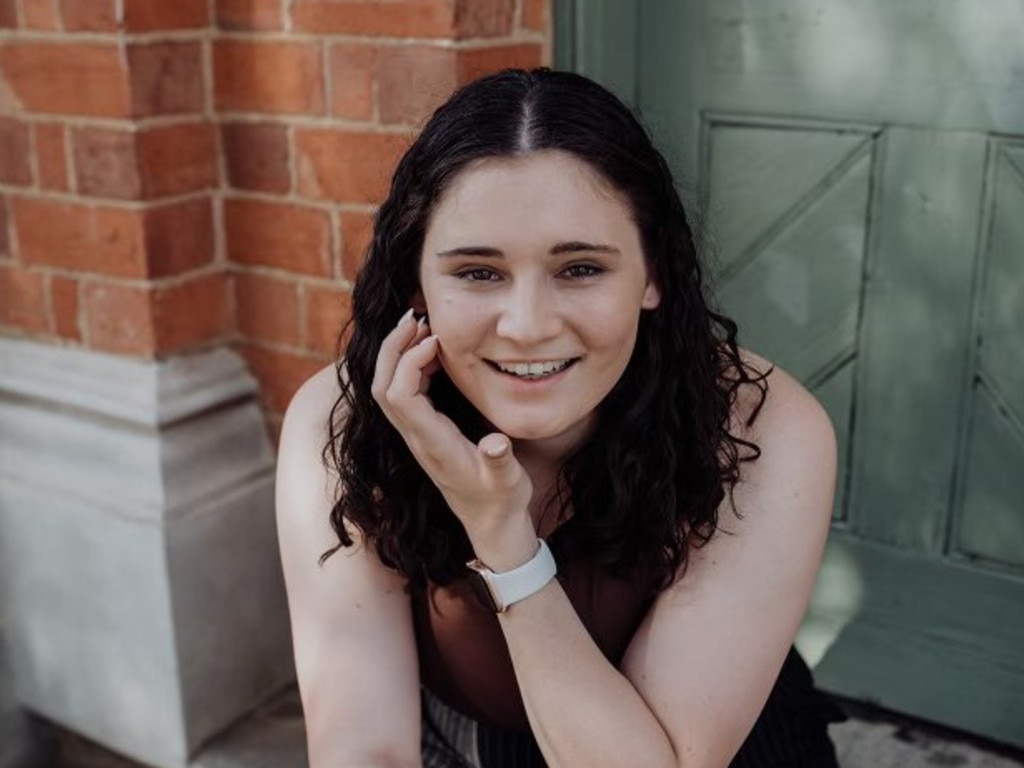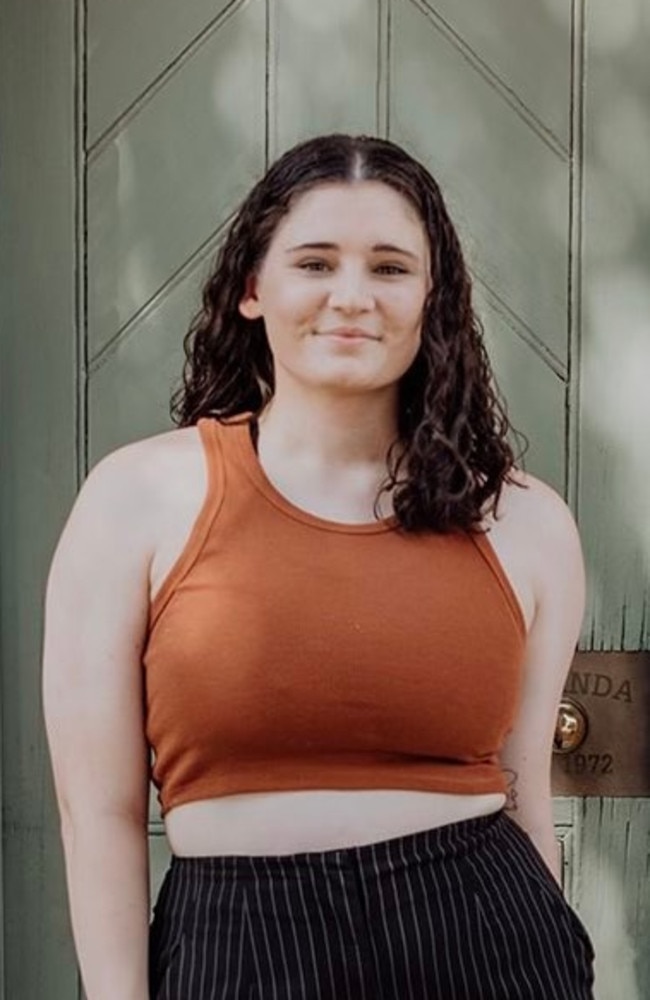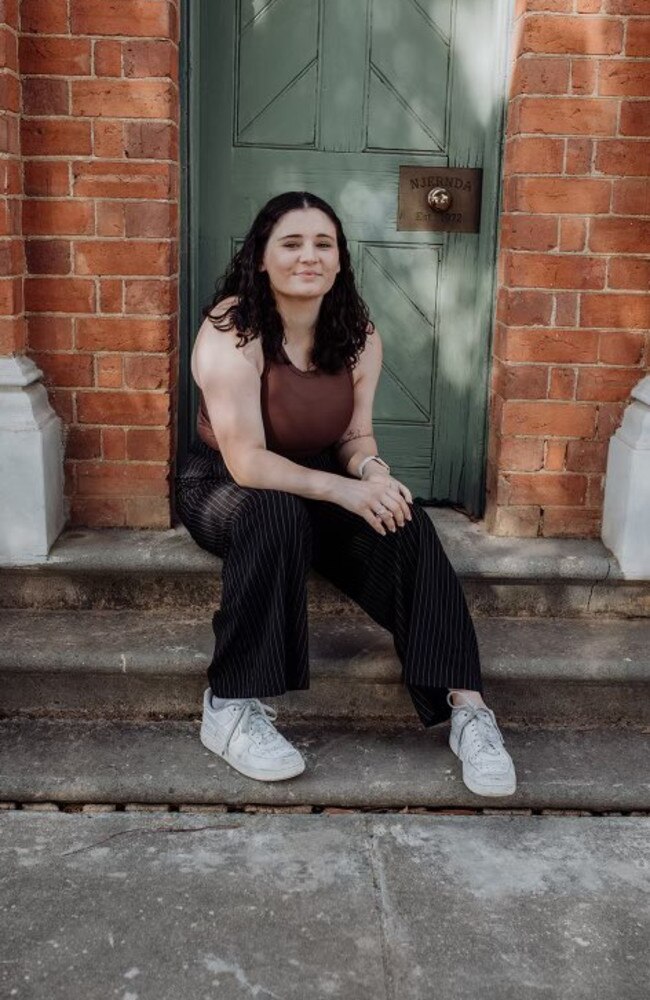Woman, 20, reveals how she battled eating disorder for years
A Melbourne woman has revealed the website she blames for contributing to her developing an eating disorder. She has this warning.
A 20-year-old woman has revealed there is a tightrope when it comes to social media and eating disorders, revealing how one platform negatively impacted her but another helped her find her voice.
Molli Johns, from Melbourne, said when she was 13 and spending a lot of time on blogging platform Tumblr – notorious for promoting rhetoric around thin ideals to a negative degree.
“I was 13, and I was young – fresh into high school – and I just didn’t like what I looked like,” she said, explaining she began thinking about her body more and more.
“I had a really crappy relationship with food. I was always thinking about what I was going to eat, what I had just eaten and what exercise I was going to do.”
Molli said that she believed Tumblr had an impact when it came to her eventual diagnosis of atypical anorexia, and she didn’t completely understand the gravity of what was happening until she was 16.

The then teenager was forced into recovery before she was completely ready to admit what was happening.
“One of the teachers at my school who I was quite close with actually prompted me to go,” Mollie explained to news.com.au.
“She’d had quite a similar experience to me growing up and so she prompted me to go and see one of the school social workers and she got me started in the public mental health system.”
Molli said it wasn’t going to work that way but when she turned 18 and moved out, she saw her own therapist, who took the time to walk through everything with her.
For two years, she has been in recovery on her own accord, and took to social media to try and educate others through sharing her own story.
A recent study from UNSW in the journal called Body Image said the social media platform TikTok can negatively affect young women when it comes to their physical appearance – particularly if they believe the content is unedited.
The study acknowledged that while social media’s impact on body image isn’t new, TikTok’s short form video format particularly focuses on physical appearance.
“Appearance-ideal content can pressure women to look a certain way that is unrealistic or completely unattainable,” says Dr Jasmine Fardouly, senior author of the study, said.

“We know this starts early, with girls as young as six years old reporting unhappiness with their bodies, desires to look thinner, and even dieting to lose weight.”
For the study, 211 women between 17 and 28 looked at 10 images or videos from Instagram and TikTok of young, female influencers that reflected appearance ideals.
Researchers found no matter the platform, “appearance-ideal short-form video content on social media can have negative effects on mood, self objectification and appearance satisfaction”.
It would also lead to people comparing themselves to those in the videos.
Melissa Wilton, the Butterfly Foundation’s Head of Communications, said body image concerns existed long before social media but it does have a part to play when it comes to eating disorders by creating unrealistic body image expectations.
However, it can also create positive opportunities such as “improving access to mental health services, enabling positive connection among peers and operation as sites of as sites of resistance to harmful narratives”, Melissa told news.com.au,
“However, developing social media literacy skills is key to making social media a positive space for users, reducing the risk of developing or exacerbating an eating disorder and improving resilience and wellbeing.
“Including blocking or reporting distressing content and accounts, taking regular breaks from scrolling (Instagram has a tool to set time limits to remind you to take a break), and filling feeds with positivity by following accounts that align with your own passions, hobbies, or interests outside of the realm of body appearance,” she said.

She added that any editing on an image or video can also cause body dissatisfaction.
“However, as we have seen with recent legislation in Norway that requires content creators to declare if their images have been modified, the solution is not that simple,” she said.
“Research shows that such disclaimers do not decrease perceived realism or social comparison with the idealised images. Instead, systemic and societal change needs to occur offline to combat problematic content that promotes fatphobia, weight stigma and appearance-based teasing occurring in the first instance.”
She said that Butterfly Foundation is constantly working with social media channels to advise on in-app product developments and poly to protect users from harmful content.
“Facebook does have advertising standards in place to protect users against images that contain unrealistic ‘before and after’ photos as well as content that attempts to generate negative self-perception to promote diet, weight loss or other health related products, and Pinterest has banned unsafe weight loss and dieting advertisements,” she said.
“However, there’s much more that can be done across all platforms to ensure people’s body image, mental health and relationship with eating and exercise is not compromised when engaging with these platforms.”
Molli said while social media has become dangerous when it comes to body image, there are a lot of positives.
“You look at Tumblr era and that was horrible but that was because there was nothing on Tumblr to combat what was happening,” she said.
“Whereas now you look at Instagram, TikTok and there’s so many bad things happening but there are also so many positive influences that combat it.
“I think it’s important [to regulate social media] but I know when I was trying to use what happened to me in a positive way, every single word I use was flagged and taken off social media.”
Molli said there was a tightrope to walk when it came to social media and body image.






